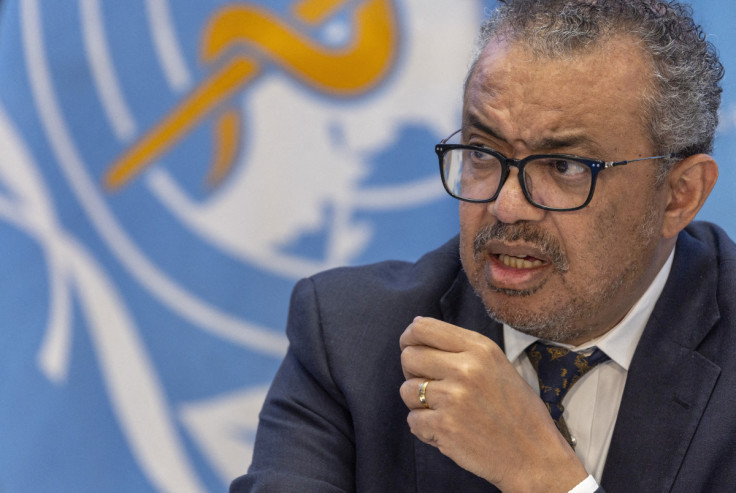WHO Economics Council suggests value based economic policy instead of GDP
The report titled "Health For All: Transforming Economies To Deliver What Matters" is the first time such a report highlighting healthcare ideas and initiatives for governments and the private sector has been made available.

Three years after the COVID-19 pandemic wreaked havoc in the world, derailing economies and causing massive job cuts, the World Health Organisationhas compiled a report that showcases ways to adjust the major economies and make healthcare available for all. The report was tabled at the recently concluded World Health Assembly held in Geneva, Switzerland.
The report titled "Health For All: Transforming Economies To Deliver What Matters" is developed by an expert group of 10 renowned economists who are part of the Economics of Health For All Council of WHO. This is the first time such a report highlighting healthcare ideas and initiatives for governments and the private sector has been made available. This is done to streamline decision-making for the healthcare sector, making it more easier and economical for governments to formulate a public health policy for all.
In November 2020, WHO Director-General Dr Tedros Adhanom Ghebreyesus created this council as the COVID-19 pandemic called for such a step. The 54-year-old economist Mariana Mazzucato from the University College of London chaired the council that was tasked to think about economic policy in terms of a "health for all" perspective.
Two years ago, I asked a team of the world's leading economists and public health experts – all women – to create a paradigm shift. Now, instead of health for all being seen as the servant of economic growth, we have a roadmap for structuring economic activity in a way that will allow us to reach the goal of seeing all people with access to essential health services faster with better results.
The core idea was to orient economic policies in a way that had healthcare at the heart of affairs. So, the entire social system, economic system, healthcare system and other policies have to be centred around health. Now the Council has fulfilled its duty and suggested a very bold narrative to reorient economies.
Designing an economy for health
We have examined the changes needed – including the structure of patents, public-private partnerships, and budgets – to design an economy that delivers Health for All. In our final report, we call for a new economic policy that is not about market fixing but about proactively and collaboratively shaping markets that prioritise human and planetary health.
The narrative is based on four basic parameters:
- Value: Everything would be measured and analysed according to the new economic metrics. So, the value of things would be determined by the metrics.
- Innovation: The new system will evaluate and formulate ways of advancing health for the collective good through innovation.
- Capacity: The best ways would be employed to equip the public sector so that it can function at its highest capacity to fulfil the health for all agenda.
- Finance: Lastly, health would be seen as a long-term investment strategy and financed keeping that in mind.
The new economic policy recommendations
The all-women team of experts have recommended a series of ideas for the new economic policy drawing from their past experiences.
- The council suggests a shift from GDP and growth-orienting economic policy to a more pragmatic and value-based economic policy which deals with the social and planetary well-being of people. The new metrics are to guide governments in making such a value-based economy
- High-quality and long-term financing has been suggested for national and international systems which deal with healthcare spending. This would require more monetary investment but the goal would be beneficial in the long run.
- The report also underlines the need for innovation towards a common good, not just a solitary act by a company or a government. So, the call is for a collective intelligence of various organisations at different levels for a long sustained innovation. An all-inclusive end-to-end innovative healthcare system is the goal here.
- A robust and dynamic healthcare system that is well designed and has a vast number of resources backed by adequate infrastructure ( both in the finance and people power sense) is the need of the hour. Such systems will underline the capacity and quality of the government.
Examples of how to do it
The council hasn't just stopped giving suggestions, they have also underlined some examples which can be followed.
- The health industrial complex of Brazil is a public investment system which fulfils the common good of health for all.
- South Africa's mRNA technology facility has the right mix of financing, innovation and capacity building, making it a value-driven system.
- Lastly, regional development banks like the Wellbeing Economy Alliance of 600 organisations work together to change the economic systems. This is happening in the Global South where organisations have come together to create national action plans or NAPs, making funds available for things like antimicrobial resistance through various channels.
The World Health Organisation has underlined that these recommendations have the potential to change the way health is financed and as such they should be considered by economic communities, policymakers and civil society.
© Copyright IBTimes 2025. All rights reserved.






















